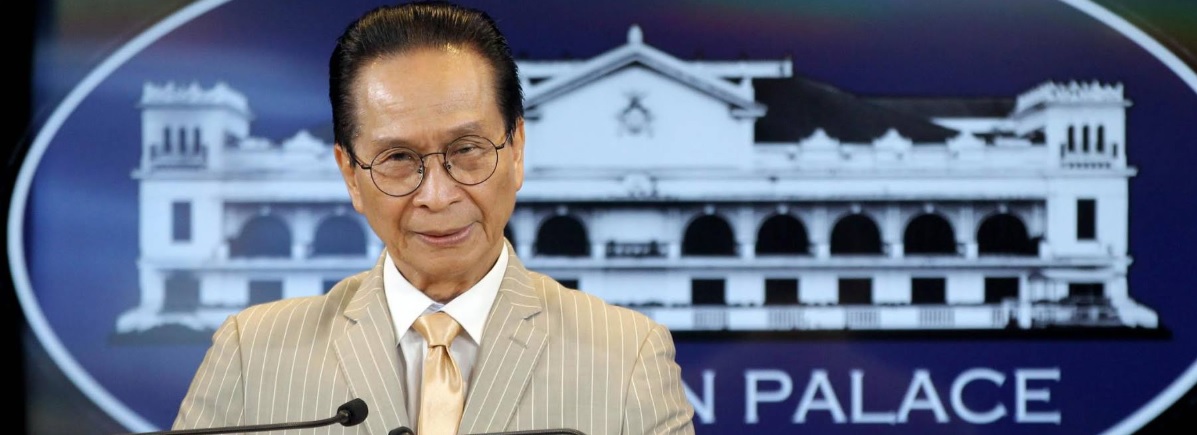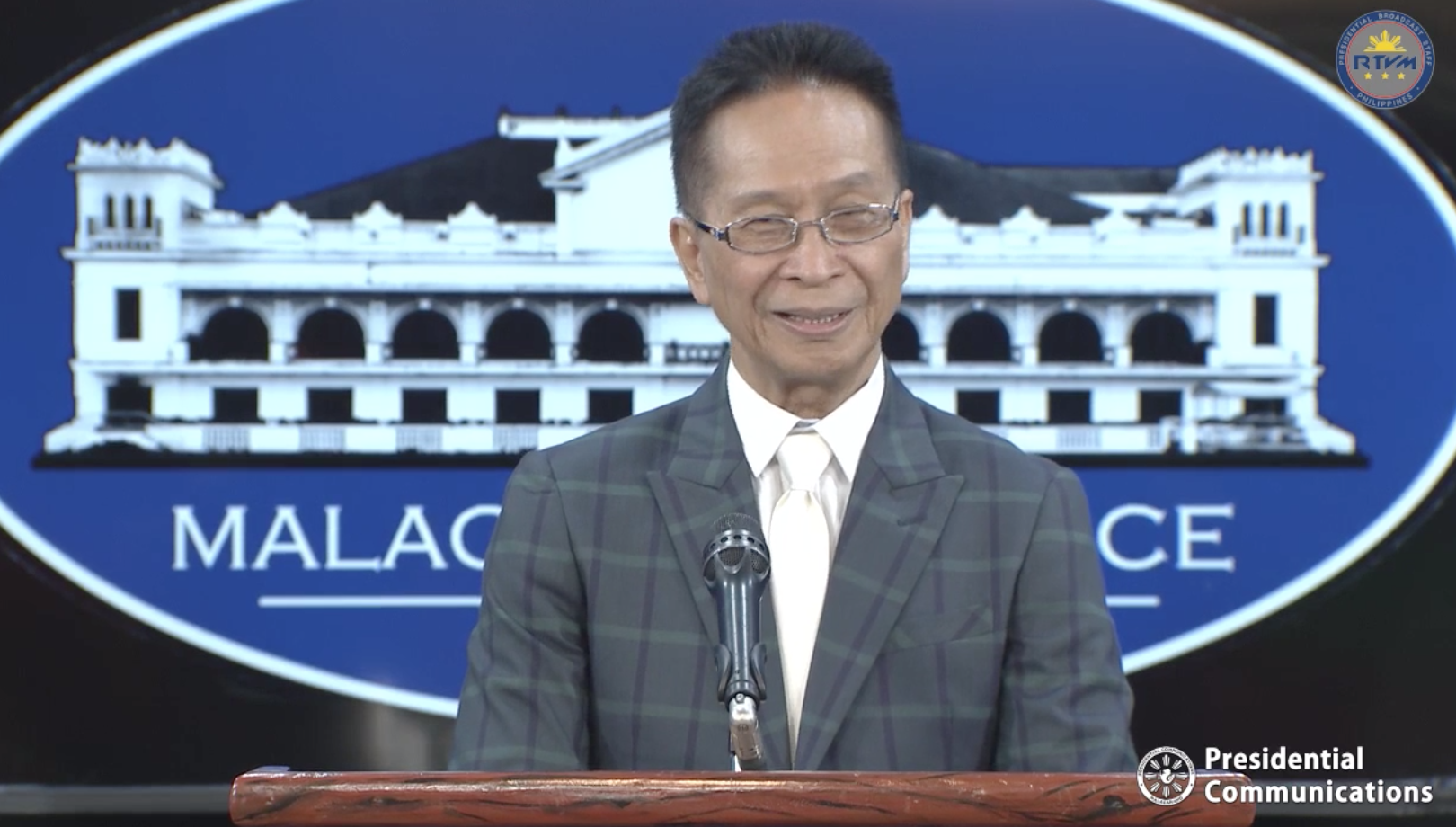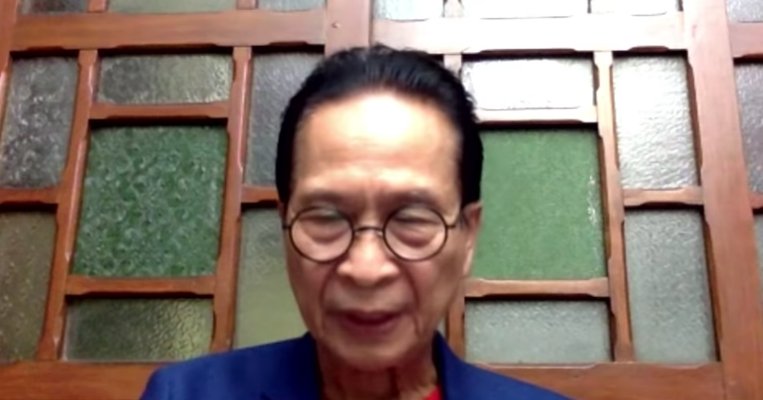Presidential Spokesperson Salvador Panelo’s suggestion to copy the lead of the United States government in funding the campaign of political candidates to address vote buying lacks context.
STATEMENT
In a press briefing May 14, a day after the midterm polls, Panelo was asked what policy he thinks the government should implement to avoid vote-buying in the next elections. He said:
“Ako ang iniisip ko, alam ninyo kung ano, para walang gastos ang mga kandidato (You know what I think, so that candidates would not incur expenses), the government should spend for the expenses of the candidates just like in America. Ang mga Amerikano galing sa gobyerno ang gastos nila eh, mga kandidato (In America the government spends for them, the candidates).”
Source: PCOO, Press Briefing of Presidential Spokesperson and Chief Presidential Legal Counsel Secretary Salvador Panelo, May 14, 2019, watch from 12:01 to 12:18
FACT
While the U.S. government funds political campaigns, this is subject to certain conditions and is not mandatory. Government funding is not extended to all elective positions and varies from state to state.
In the federal level, only presidential candidates have access to public campaign funds; congressional candidates do not.
Under the Presidential Public Funding Program, candidates may use federal government funds for their campaign in both the primary and general elections, subject to certain conditions. It was created to “correct problems perceived in the Presidential electoral process” including:
- Disproportionate influence or the appearance of influence of wealthy contributors;
- Demands of fundraising that prevented some candidates from adequately presenting their views to the public; and
- Increasing cost of presidential campaigns that effectively disqualified candidates who did not have access to large sums of money.
The program is solely financed by taxpayers, who may voluntarily allocate $3 of their federal income payments to the presidential campaign fund.
During primaries, funding is only available to candidates seeking nomination from political parties who are able to collect $250 from at least 20 individuals each in at least 20 states. Primary elections are run by state and local governments to help choose the nominees of major parties in the general elections.
For the general elections, such nominees may opt for full funding by way of a grant, which in 2016 was worth a little over $90 million. Eligible minor party nominees, on the other hand, may get partial assistance.
But to qualify for the general election grant, nominees of major parties must agree to “limit spending to the amount of the grant and may not accept private contributions for the campaign.”
No presidential candidate in the last two general elections, held in 2012 and 2016, opted to use public campaign funds, according to data from the U.S. Federal Election Commission (FEC).
A big chunk of Republican American President Donald Trump’s campaign fund, worth over $350 million, came from individual contributions, at 38.11%, and “transfers from other authorized committees,” at 38.38%. A considerable sum also came from Trump’s own pockets through loans, 13.55%, and candidate contributions, 5.31%.
In the case of Trump’s predecessor, Democrat Barack Obama, 72.25% of his over $760-million campaign funds for his reelection bid came from individual contributions.
At least 14 American states are implementing a form of public funding for political campaigns.
For instance, Arizona offers full “clean funding” for candidates in all statewide and legislative positions “who agree to forgo special interest and high dollar contributions.” This, provided they are able to collect $5 contributions from at least 200 up to 4,000 individuals, depending on the position, as proof that the candidate has sufficient public support.
Meanwhile, Michigan offers partial funding only for gubernatorial candidates:
- During primary electoral campaigns through a matching fund for those able to collect at least $75,000 in qualifying contributions. Qualifying contributions are direct donations by individuals of $100 or less; and
- General electoral campaigns where each candidate from a major party will be given a standard $1,125,000.
Other states that have implemented public funding programs for political campaigns include Connecticut, Florida, Hawaii, Maine, Maryland, Massachusetts, Minnesota, New Mexico, Rhode Island, Vermont, West Virginia, and Wisconsin.
Sources
Presidential Communications Operations Office, Press Briefing of Presidential Spokesperson and Chief Presidential Legal Counsel Secretary Salvador Panelo, May 14, 2019
Federal Election Commission, Presidential Public Funding Program, April 1993
Federal Election Commission, Public funding of presidential elections
Usa.gov, Presidential Election Process
Federal Election Commission, Presidential Public Funding Program – Public funds received by candidates 1976-present (.xls)
Federal Election Commission, TRUMP, DONALD J. / MICHAEL R. PENCE, 2016
Federal Election Commission, Registering Your Principal Campaign Committee and Other Authorized Committees
Federal Election Commission, OBAMA, BARACK, 2012
University of Northern Texas Digital Library, Congressional Research Service: Public Financing of Congressional Campaigns: Overview and Analysis, Jan. 25, 2010
National Conference of State Legislatures, Overview of State Laws on Public Financing
National Conference of State Legislatures, State Public Financing Options 2015-2016 Election Cycle, July 17, 2015
Azcleanelections.gov, How clean funding works
Azsos.gov, Campaign Finance Candidate Guide
Senate.michigan.gov, THE STATE CAMPAIGN FUND, 2001
Michigan.gov, Public Funding for Gubernatorial Candidates
(Guided by the code of principles of the International Fact-Checking Network at Poynter, VERA Files tracks the false claims, flip-flops, misleading statements of public officials and figures, and debunks them with factual evidence. Find out more about this initiative and our methodology.)
(VERA Files is a part of Tsek.ph, a collaborative fact-checking initiative by the academe and the media for the 2019 Philippine midterm elections.)



